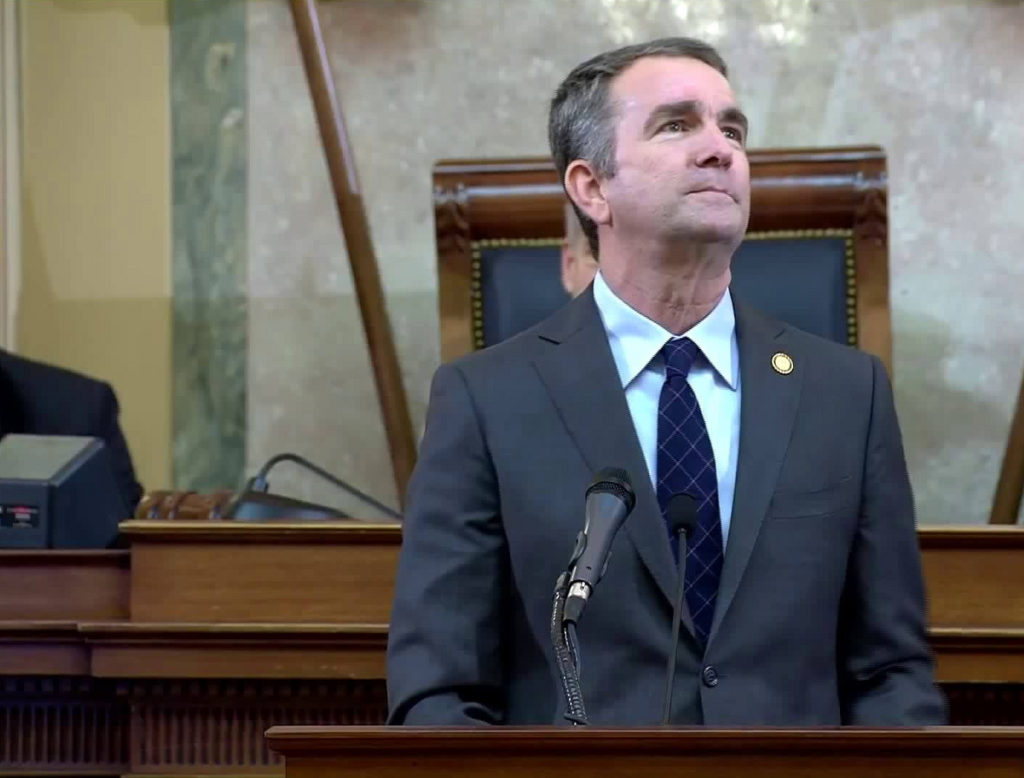As the Virginia state government deals with the massive cost overruns from last year’s landmark Medicaid expansion, the one-member Republican majority is working in this year’s 45-day session to fend off higher spending and tax hikes from both a Democratic executive branch and an encroaching liberal faction in the statehouse. One of the next state programs that could fall into financial ruination on part of unfunded liabilities is the Virginia Retirement System (VRS) after Governor Ralph Northam (D) proposed to raise health insurance credits for law enforcement without the means to efficiently pay for it.
Following the annual State of the Commonwealth address by the governor earlier this week, Northam’s measure would add $76 million in unfunded liabilities to two plans that already are funded at less than 10 percent of their long-term obligations. Coming out against the budget proposal was House Appropriations Chairman Chris Jones (R-Suffolk), who called the increases “fiscally irresponsible” and unfair to other public employees who receive the credits after retiring from state employment to help pay for health insurance.
Retiree health credits would be increased from $4 to $6 per year of service for state police and other law enforcement officers in two state pension plans. Meanwhile, credits for sheriffs and deputies would be raised from $1.50 to $5 per year of service in the governor’s plan.
In the state’s budget, $8.1 million would be included beginning July 1.
Though, changes in retirement benefits are typically altered through legislation rather than in the budget.
“It’s not like we’re not paying for it in the budget,” Secretary of Finance Aubrey Layne said Thursday in a report from the Richmond Times-Dispatch, downplaying the notion that the plans are at risk. “We’re fully paying for it as we go.”
Regardless, VRS estimates that the proposal would increase the long-term, unfunded liabilities by $33.7 million for the state fund, and $42.3 million for the sheriffs’ and deputies’ plan.
Currently, both plans are funded at less than 10 percent of their obligations – 9.67 percent for the state plan, which already has almost $900 million in unfunded liabilities, and 8.45 percent for the deputies’ plan, with an unfunded liability of about $26.3 million, according to the report. The proposals would lower the funded status of the plans to 5.40 percent and 2.66 percent, respectively.
Although law enforcement officers have not received a “meaningful” increase to their benefits in years, “to add to that liability is imprudent,” said Jones. The ranking GOP member, instead, is proposing to use $51.3 million in anticipated state savings from employee health plan premiums next year to increase funding for VRS health insurance credits.
Legislation has been introduced into the 2019 General Assembly session that convened Wednesday in Richmond to increase the credits each year for all eligible employees, based on the same cost-of-living adjustment to post-retirement benefits for employees hired after July 1, 2010. Delegate Riley Ingram (R-Hopewell) has carried House Bill 2152 in the lower chamber, with Senator Frank Ruff (R-Mecklenburg) forwarding a similar measure in the upper chamber.
The bills would annually increase the amount of health insurance credit for retirees who have rendered at least 30 years of creditable service in VRS, increasing credits by the same percentage as any annual post-retirement supplement that is calculated for employees hired on or after July 1, 2010.

